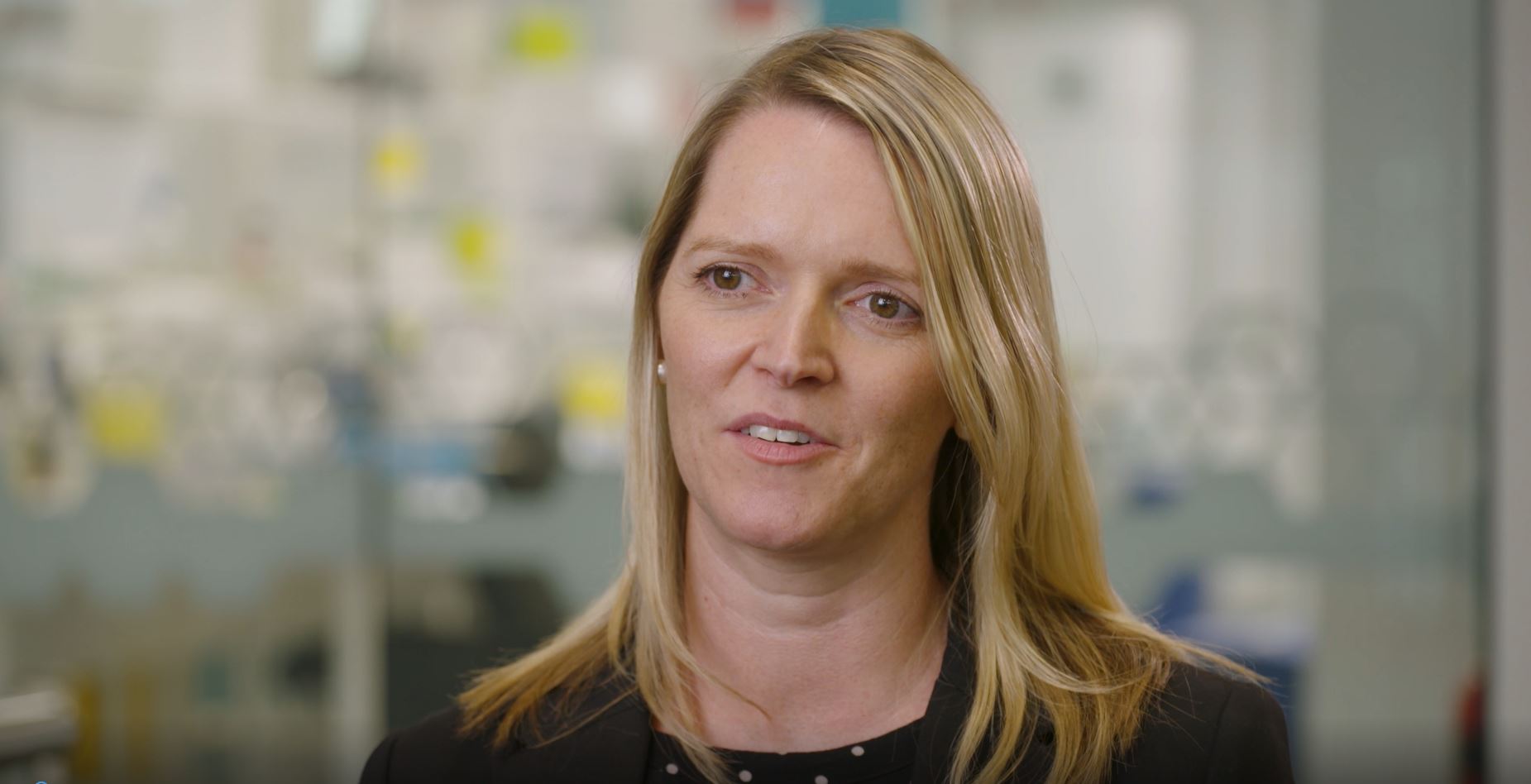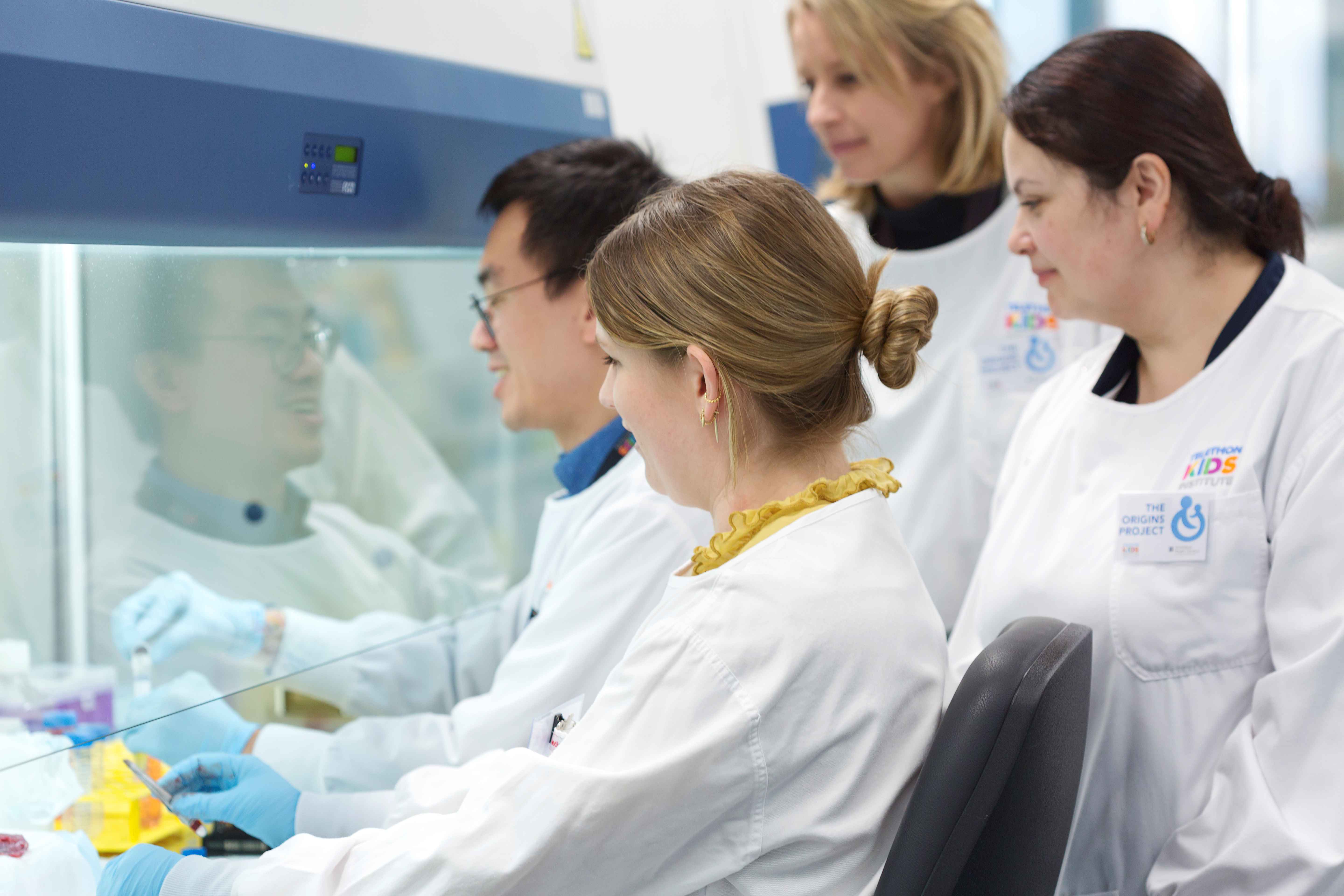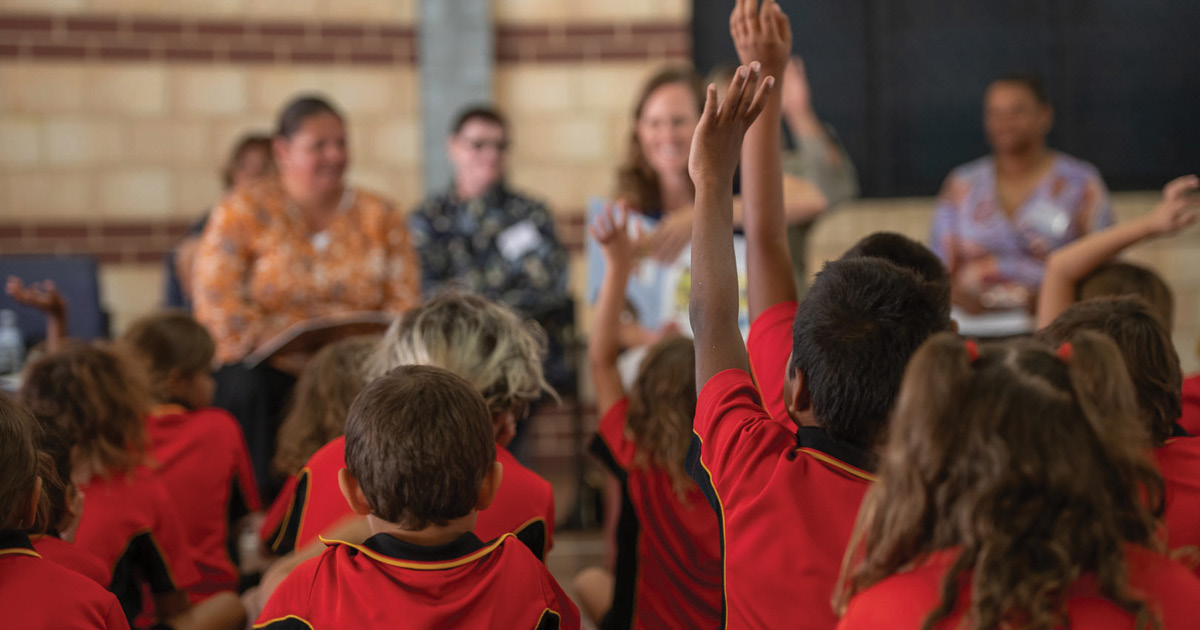Search
Showing results for "Professor"

News & Events
Seed grant preps world-first ear infection prevention therapy for human trialsThe Kids Research Institute Australia has secured a State Government grant to prepare a nasal therapy designed to prevent childhood ear infections for a world-first clinical trial.

News & Events
Shopping For Data to Drive DiscoveriesWhat if researchers could shop for different data to help uncover how, when and why chronic conditions such as asthma, obesity, allergies and poor mental health develop?

An experimental study linked to the Mums Minds Matter project, which aims to determine if pregnant women's willingness to engage in online wellbeing programs varies across types.
Research
Changing climates, compounding challenges: A participatory study on how disasters affect the sexual and reproductive health and rights of young people in FijiPacific youth are at the forefront of the climate crisis, which has important implications for their health and rights. Youth in Fiji currently bear a disproportionate burden of poor experiences and outcomes related to their sexual and reproductive health and rights (SRHR). There is limited information about how the increasing climate impacts may affect their SRHR, and what the implications may be for climate action and disaster risk reduction.
Research
The role and therapeutic implications of T cells in cancer of the lungThis review examines the role of T cells in lung cancer, discussing the direction and clinical significance of current and future immunotherapeutic strategies
Research
Equitable Expanded Carrier Screening Needs Indigenous Clinical and Population Genomic DataExpanded carrier screening (ECS) for recessive monogenic diseases requires prior knowledge of genomic variation, including DNA variants that cause disease. The composition of pathogenic variants differs greatly among human populations, but historically, research about monogenic diseases has focused mainly on people with European ancestry. By comparison, less is known about pathogenic DNA variants in people from other pa
Research
B Part of It School Leaver protocol: an observational study to assess the impact of a meningococcal serogroup B vaccine programme on carriage of Neisseria meningitidisThis study will assess the impact of MenB vaccine (4CMenB) on carriage prevalence in school leavers in South Australia
Research
Improving primary prevention of acute rheumatic fever in Australia: consensus primary care priorities identified through an eDelphi processTo establish the priorities of primary care providers to improve assessment and treatment of skin sores and sore throats among Aboriginal and Torres Strait Islander people at risk of acute rheumatic fever (ARF) and rheumatic heart disease (RHD).

Healthy skin is a vital factor in the fight against life-threatening conditions like sepsis, heart disease and kidney disease, all of which can be caused by the bacteria Strep A.
Research
The Infant Nasopharyngeal Microbiome Impacts Severity of Lower Respiratory Infection and Risk of Asthma DevelopmentLung inflammation resulting from ARIs during infancy is linked to asthma development.
